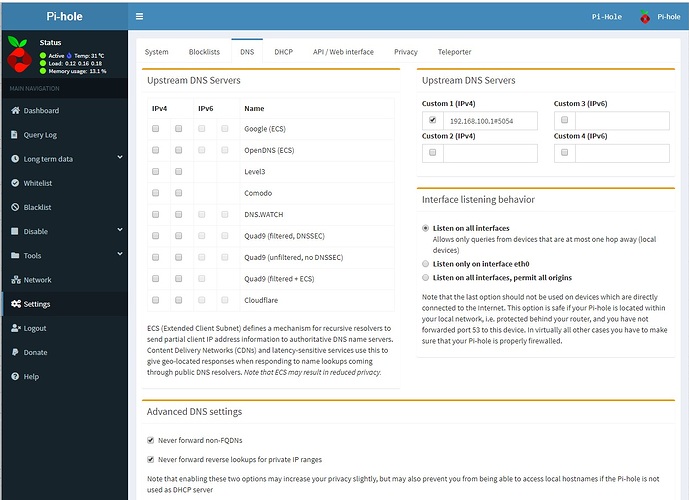ok, I looked at this tonight.
I have to ask but did you make sure to add your docker image to both the pihole and pihole_bridge networks?
If so can you please look to see if listen on all interfaces is selected like below?
Resolving this issue so your Synology can use pihole is more then just your Synology. All of your docker containers use the same DNS as your Synology. This will also give you the ability to run cloudflared or other DNS docker images that your pihole can use. As you see from the picture above my pihole goes back to a cloudflared docker image.
